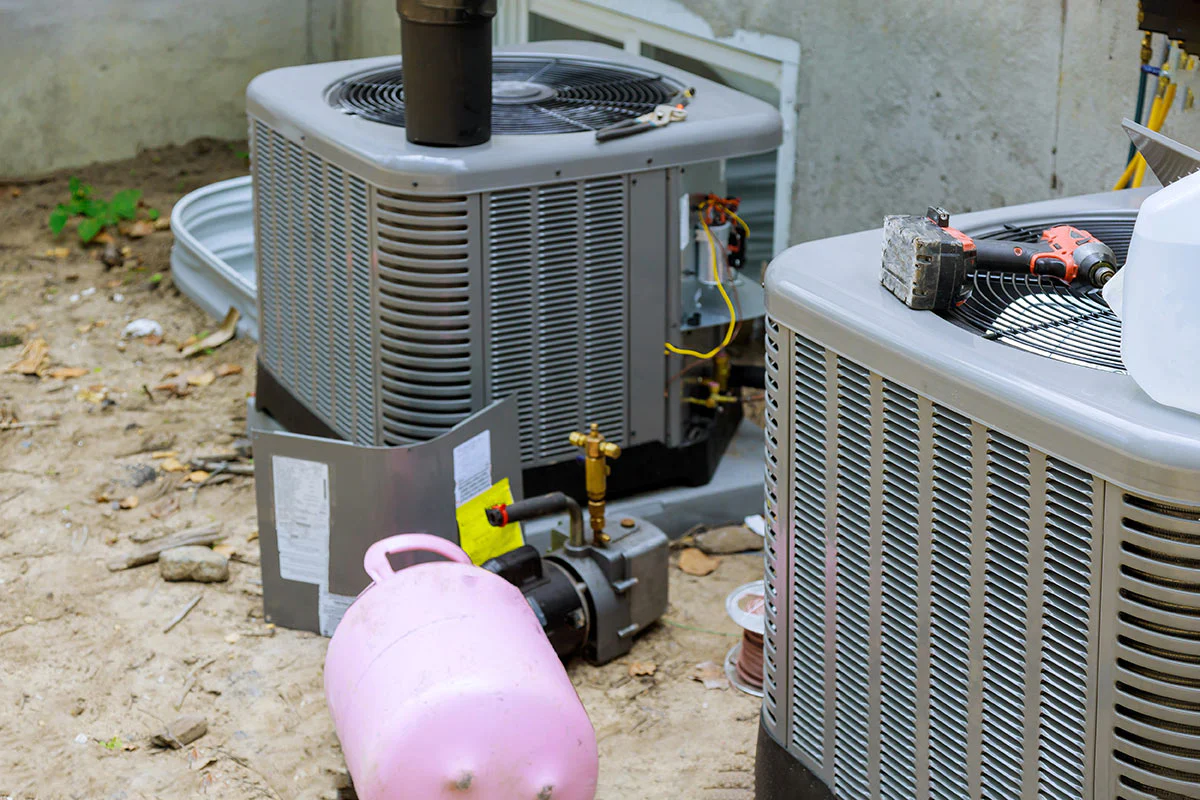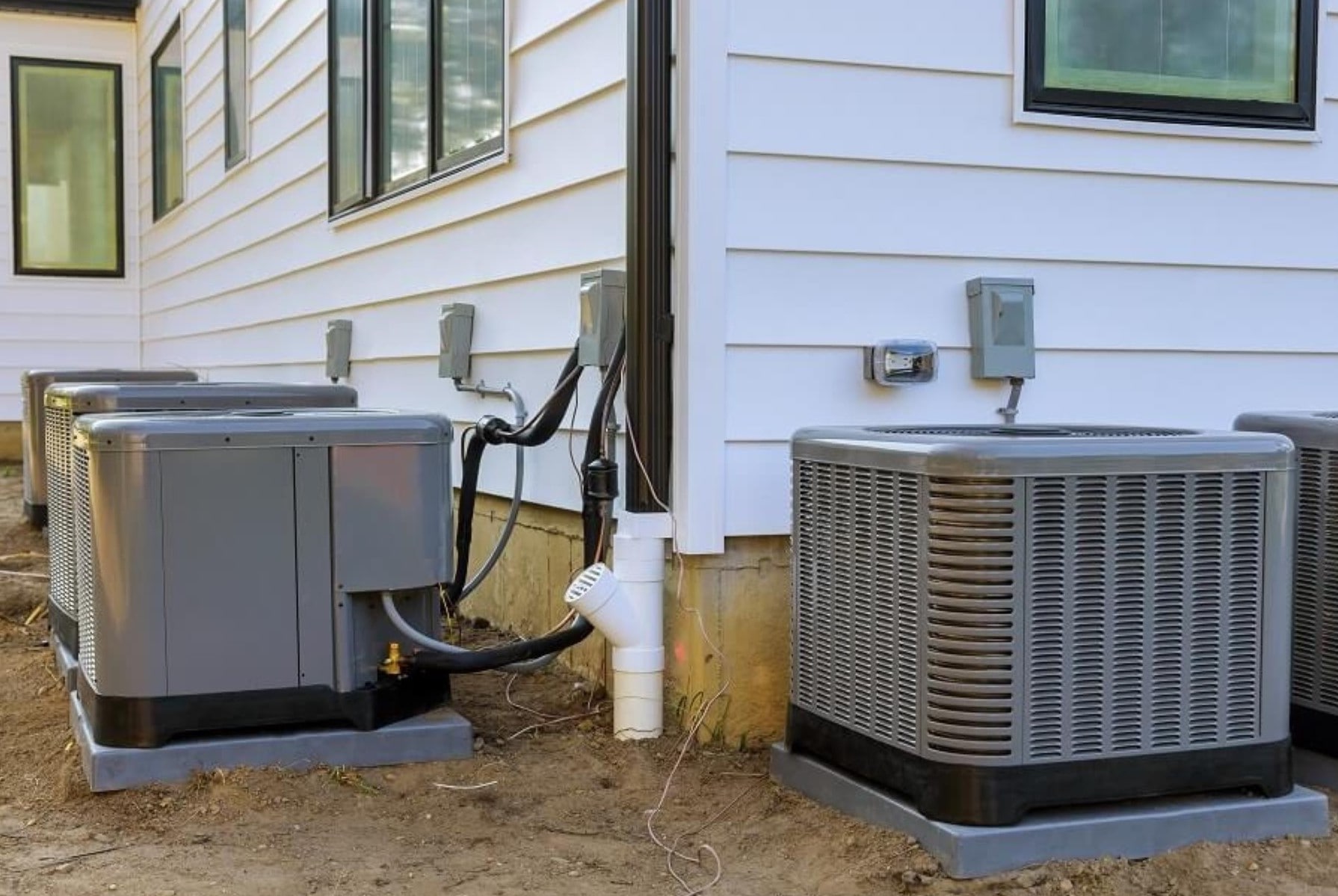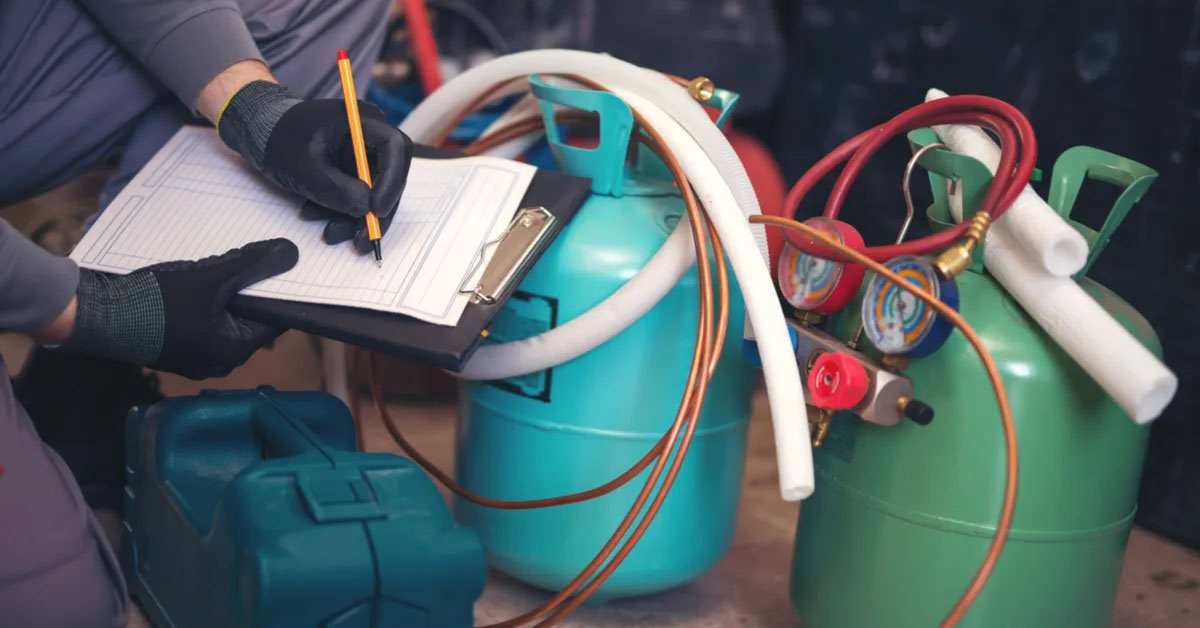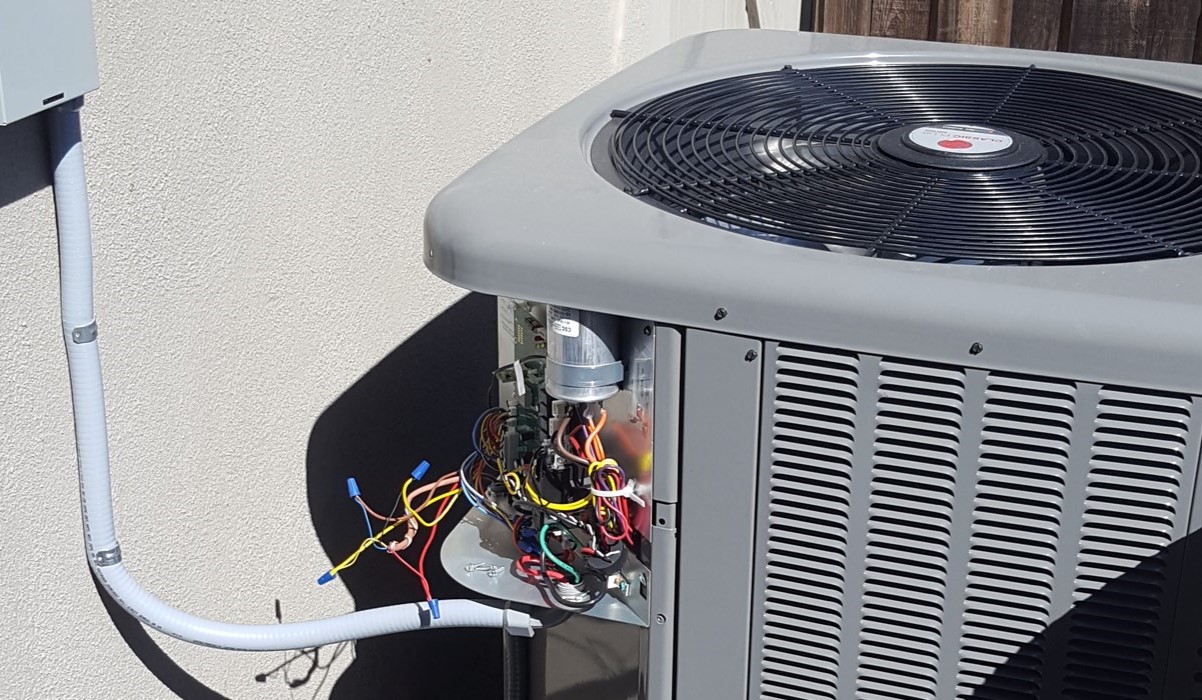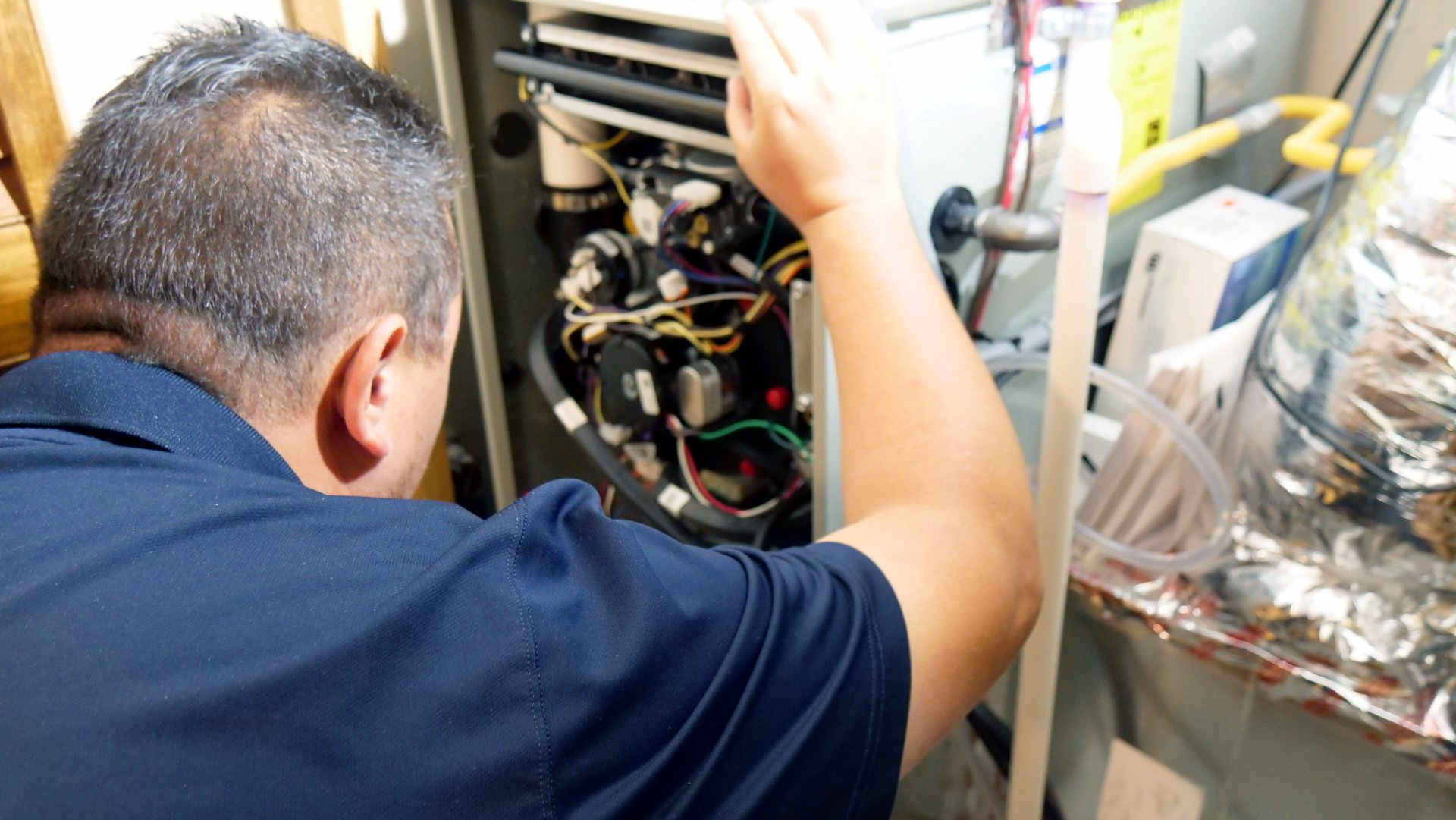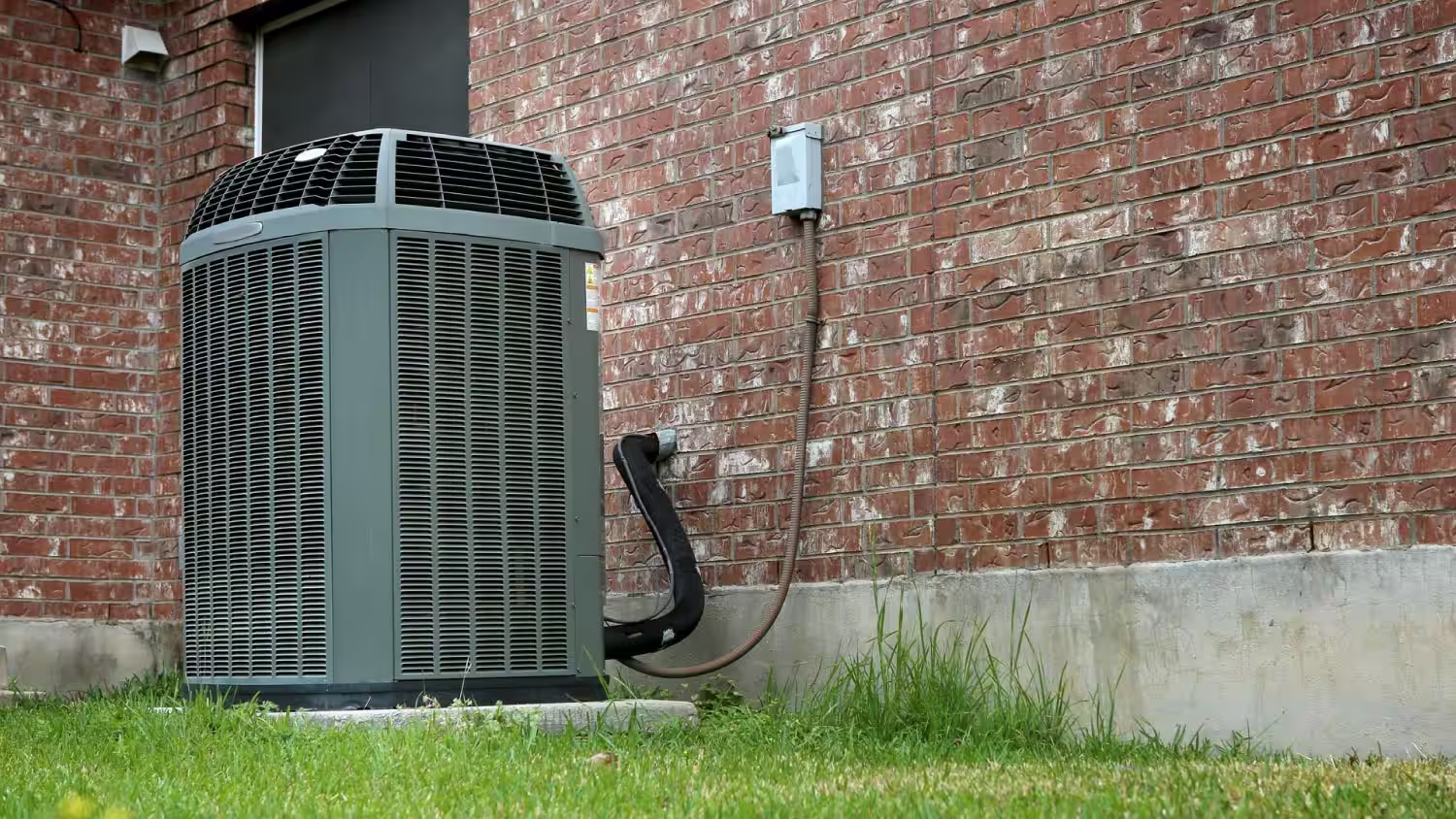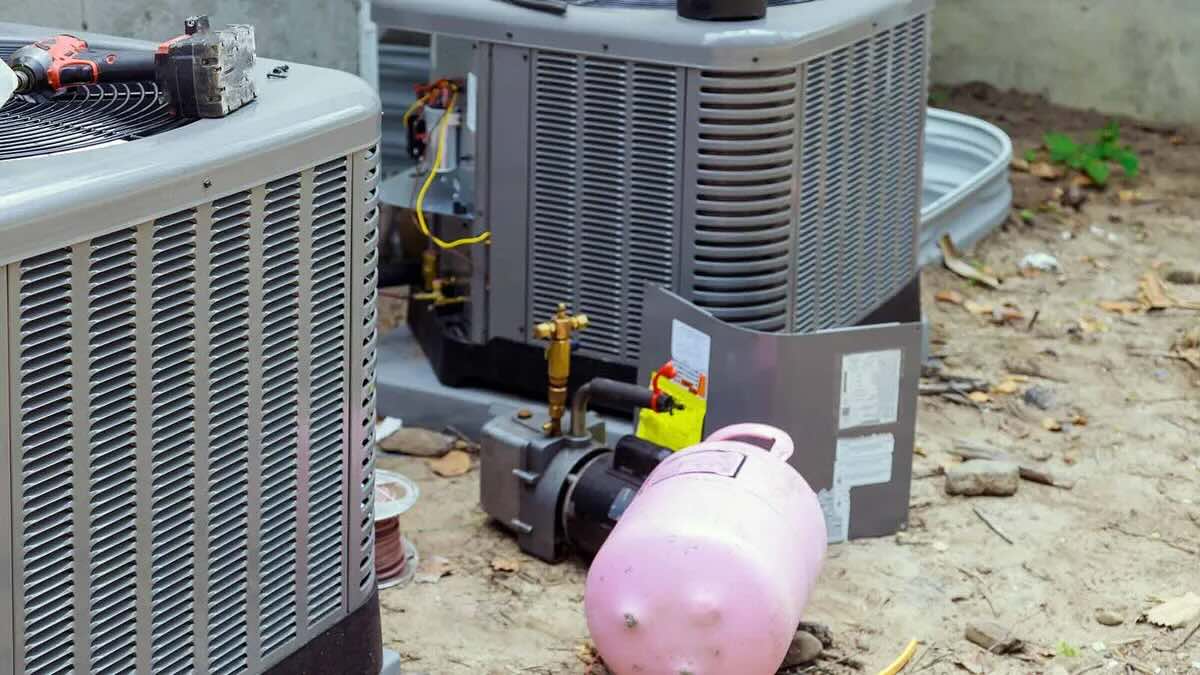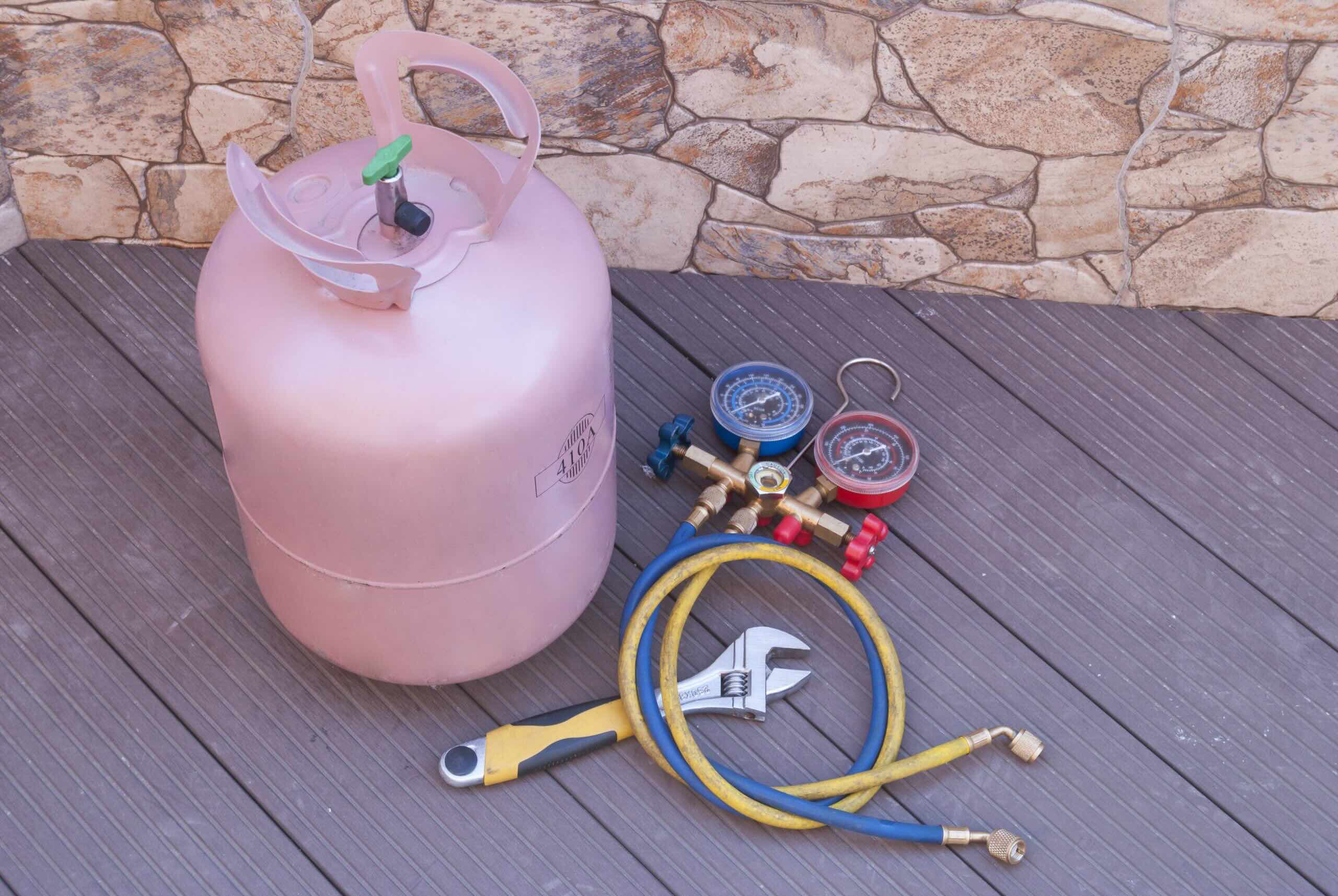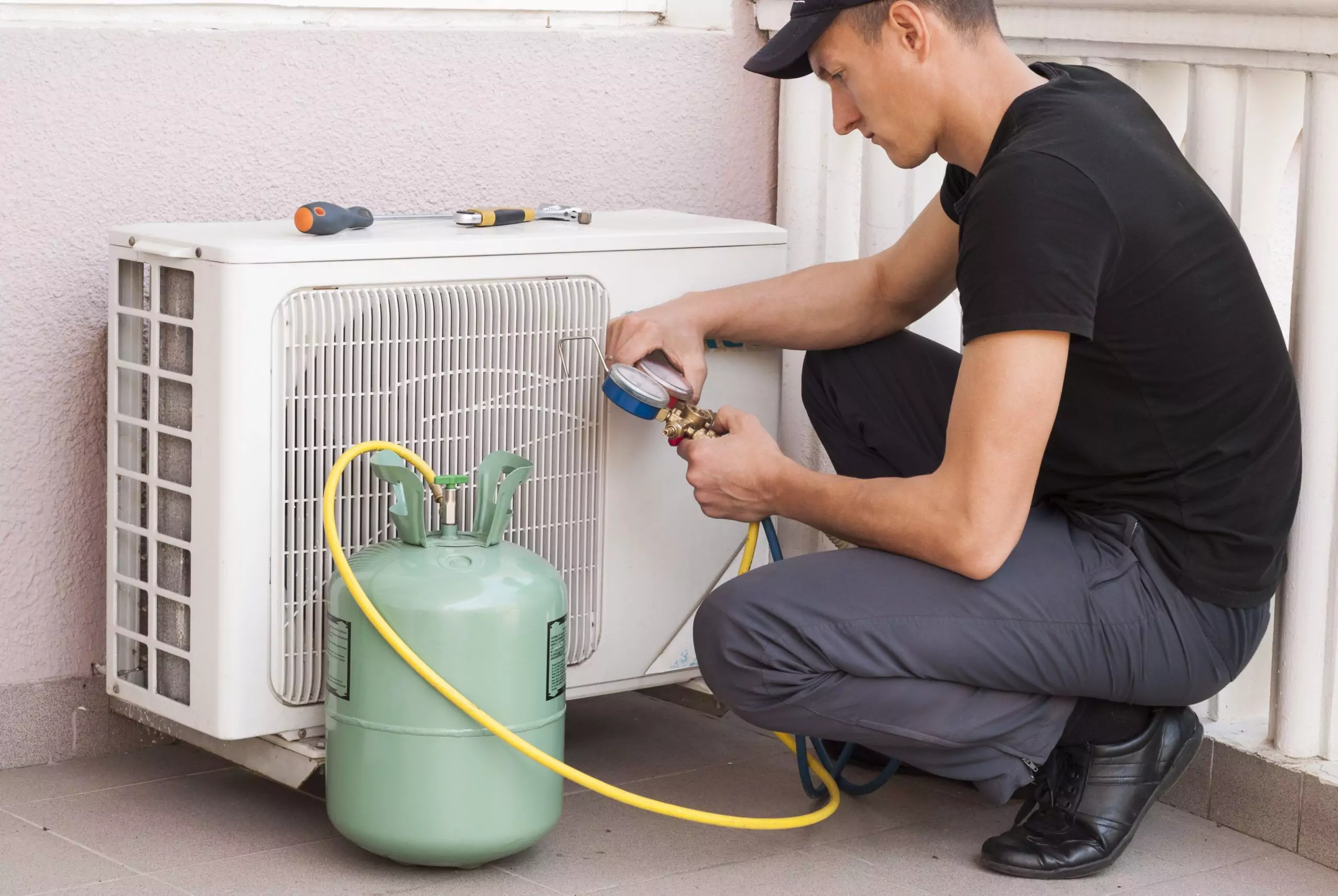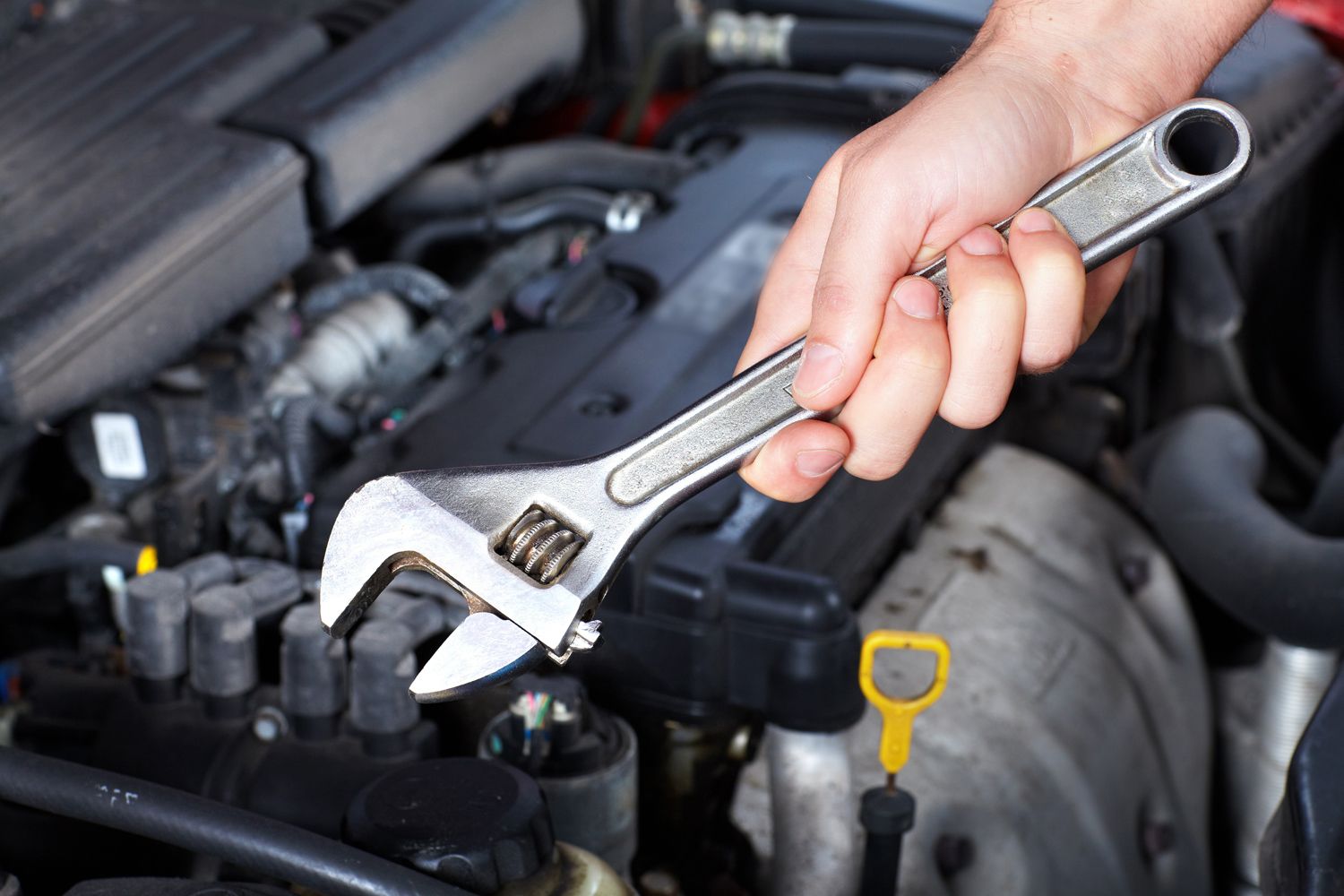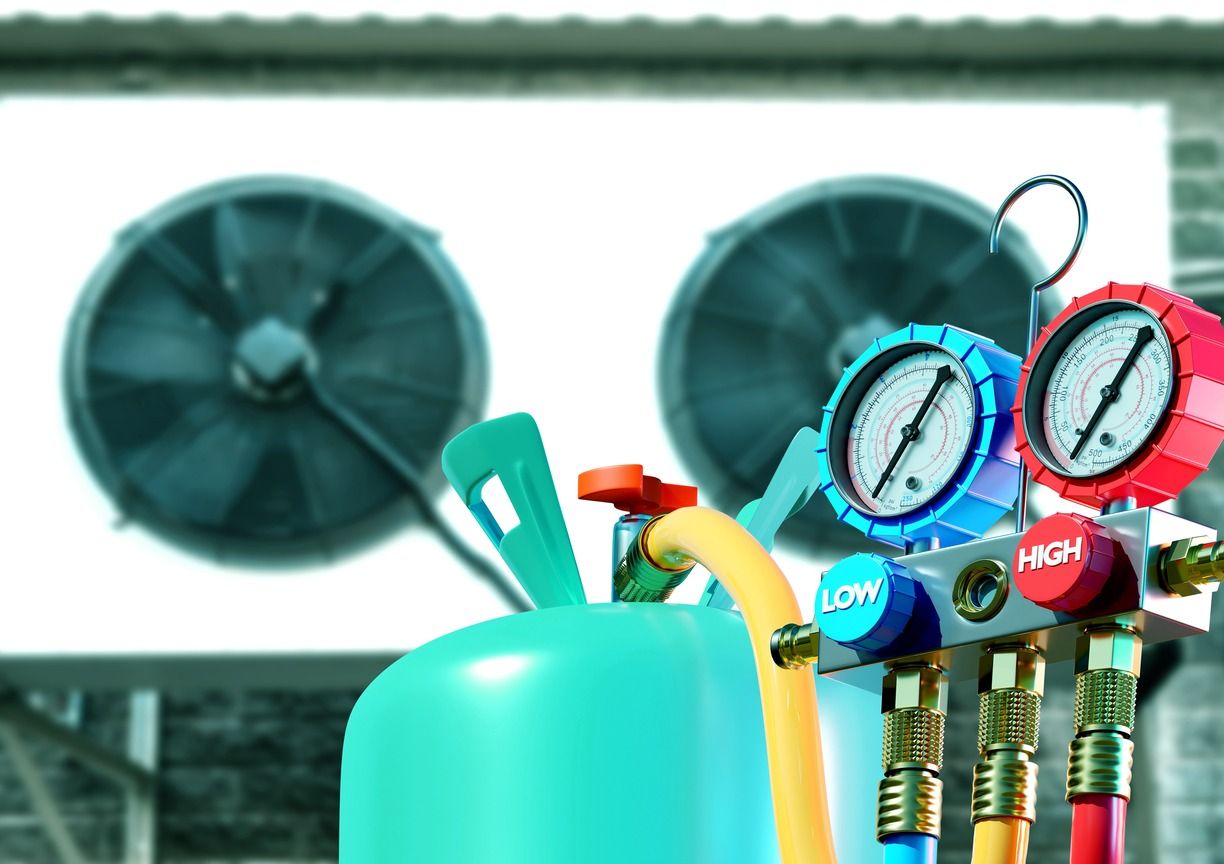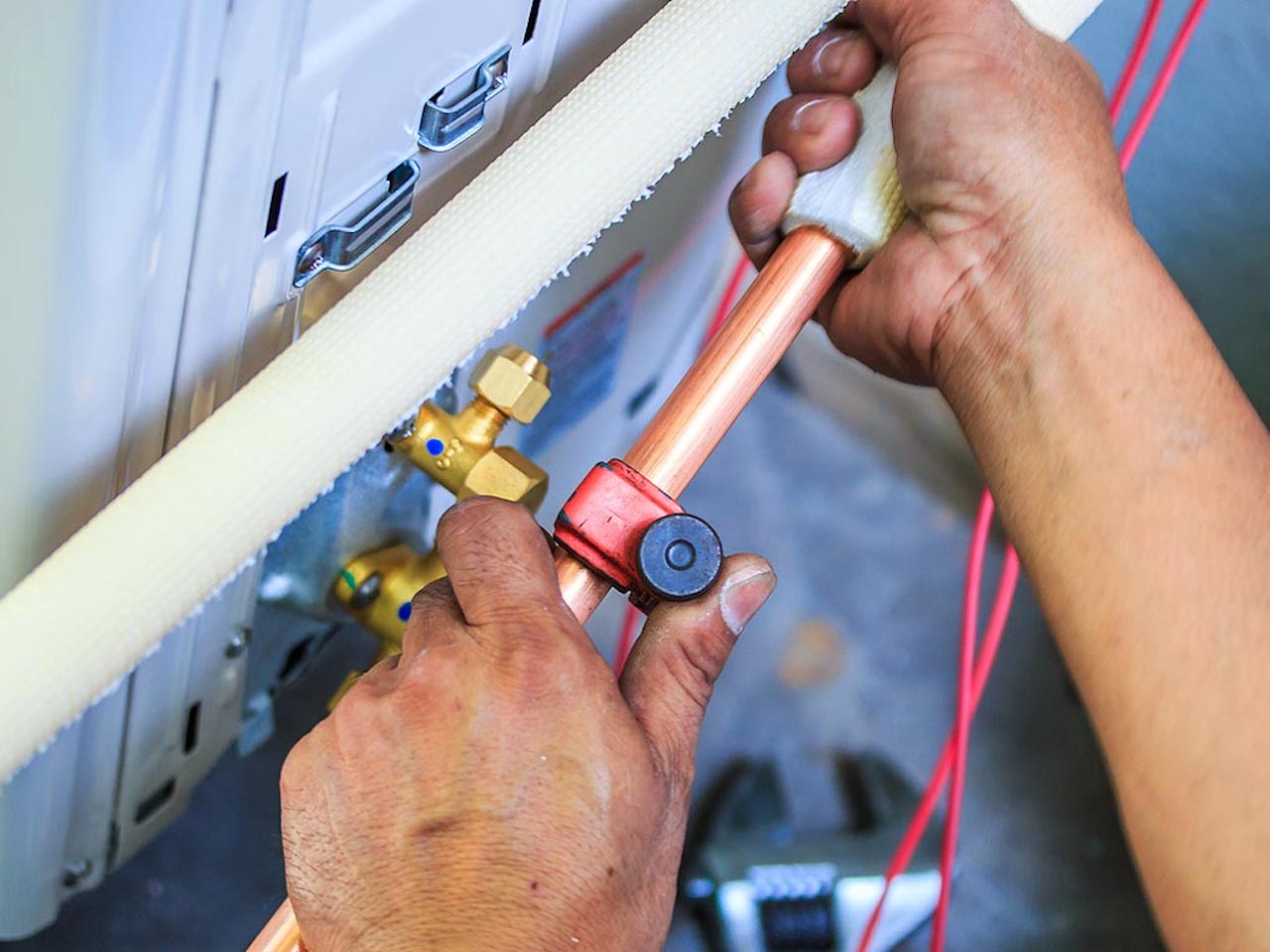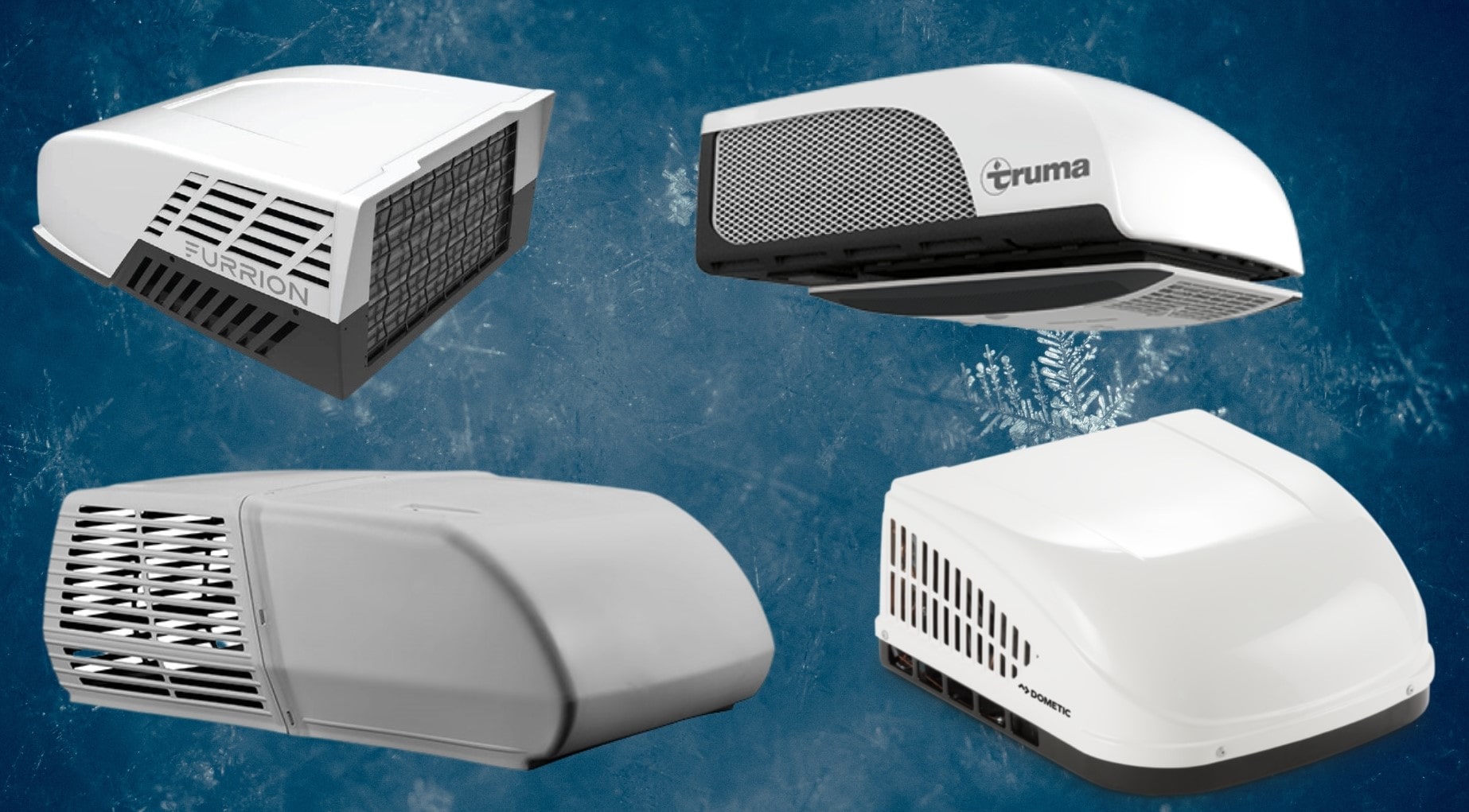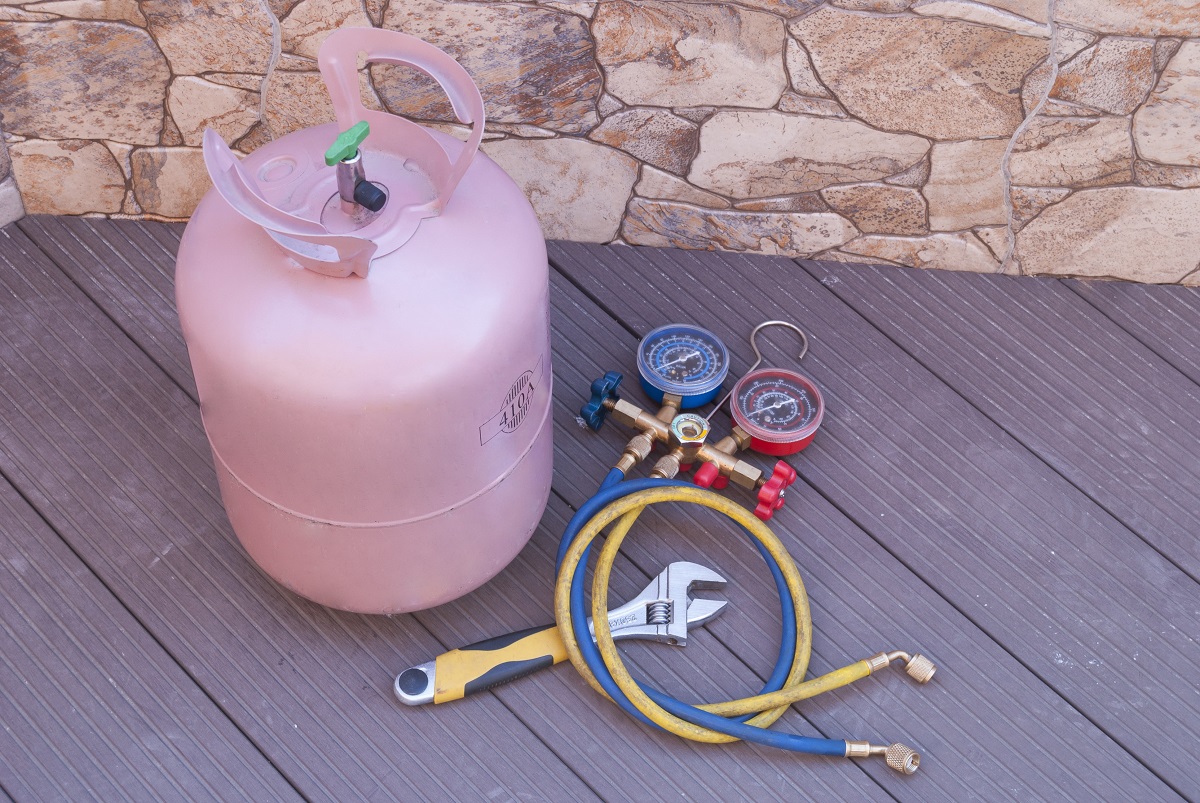Home>Home Maintenance>How Often Does An Air Conditioner Need Freon
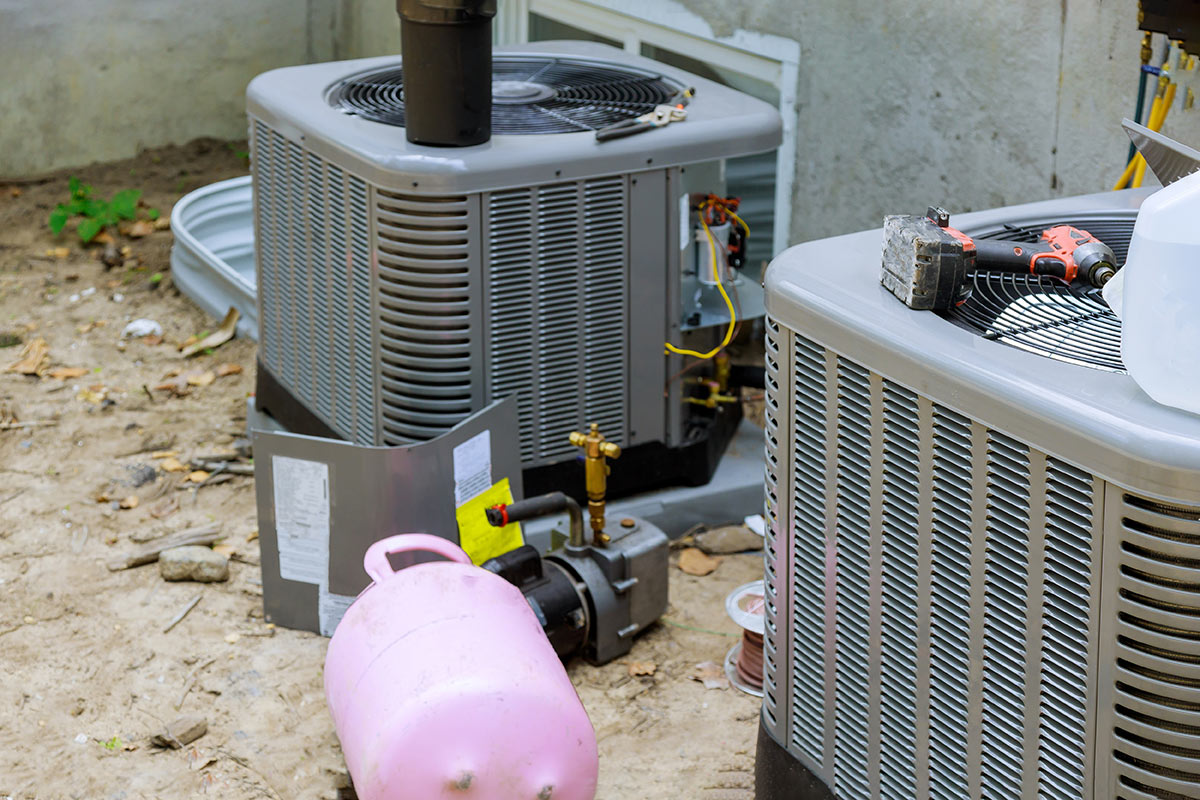

Home Maintenance
How Often Does An Air Conditioner Need Freon
Modified: March 7, 2024
Ensure your home cooling system always runs smoothly with regular maintenance. Discover how often your air conditioner may need Freon to stay efficient.
(Many of the links in this article redirect to a specific reviewed product. Your purchase of these products through affiliate links helps to generate commission for Storables.com, at no extra cost. Learn more)
Introduction
Welcome to the world of air conditioning maintenance! As a homeowner, it’s important to understand the various components of your air conditioner and how to keep it running smoothly. One crucial aspect of air conditioner maintenance is ensuring the proper levels of Freon, a refrigerant that plays a key role in the cooling process.
In this article, we will explore the role of Freon in an air conditioner, identify signs that your unit may need more Freon, discuss factors that can affect Freon levels, and address common misconceptions about Freon and air conditioning. By the end, you’ll have a better understanding of how often your air conditioner may need to be recharged with Freon and the importance of professional maintenance.
Let’s dive in and learn more about this important aspect of air conditioning maintenance.
Key Takeaways:
- Keep your air conditioner running smoothly by understanding the signs of low Freon levels, such as warm air, reduced airflow, and frost buildup, and rely on professional HVAC technicians for accurate diagnosis and maintenance.
- Freon recharges should only be performed by qualified technicians after addressing any underlying issues, and regular professional maintenance is crucial for optimal Freon levels and efficient air conditioning performance.
Understanding Freon and its role in an air conditioner
Freon, also known as R-22 or hydrochlorofluorocarbon (HCFC), is a colorless and odorless gas that is commonly used as a refrigerant in air conditioning systems. Its primary purpose is to absorb heat from the indoor air and release it outside, resulting in a cool and comfortable environment inside your home.
The process starts with the compressor compressing the refrigerant gas, increasing its temperature and pressure. This high-pressure gas then flows through the condenser coils located in the outdoor unit of the air conditioner. As the hot gas passes through the condenser coils, it loses heat and converts back into a liquid state.
Next, the liquid refrigerant enters the evaporator coils inside your home. The indoor unit’s blower fan blows warm air over these coils, causing the refrigerant to absorb the heat from the air and evaporate. This evaporation process cools down the air, which is then circulated back into your home, while the refrigerant itself returns to the compressor to start the cycle again.
Freon plays a critical role in this cycle by transferring the heat from the indoor air to the outdoor environment, allowing your air conditioner to cool your home effectively. Without the proper amount of Freon, your air conditioner may struggle to maintain the desired temperature and efficiency.
It’s worth noting that with advancements in technology and environmental considerations, new air conditioning systems now use alternative refrigerants, such as R-410A, which are more environmentally friendly and have replaced Freon in many newer systems. However, if you have an older air conditioner that still uses Freon, it’s essential to understand its role and ensure its appropriate levels for optimal performance.
Signs that your air conditioner may need more Freon
While your air conditioner is designed to operate with a specific amount of Freon, over time, it may experience leaks or other issues that can cause the refrigerant levels to deplete. When this happens, your unit may exhibit certain signs that indicate it may need a recharge of Freon. Being aware of these signs can help you identify and address the issue promptly. Here are some common indicators:
- Lack of cool air: If your air conditioner is blowing warm or lukewarm air instead of cool air, it could be a sign that the Freon levels are low. Insufficient refrigerant can hinder the cooling process and prevent your unit from adequately cooling your home.
- Reduced airflow: Another sign of low Freon levels is weakened airflow from the supply vents. If you notice that your air conditioner is not blowing air as forcefully as it used to, it could be due to a refrigerant issue.
- Frost or ice buildup: A telltale sign of low Freon levels is the presence of frost or ice on the evaporator coils. When there is insufficient refrigerant, the coils may become too cold, causing condensation to freeze and accumulate on them. This can lead to reduced airflow and poor system performance.
- Inefficient cooling: If you find that your air conditioner is running for longer periods without adequately cooling your home, it could be a sign of low Freon. Insufficient refrigerant can put a strain on the system, causing it to work harder and less efficiently.
- Increased energy bills: When your air conditioner is low on Freon, it may consume more energy to compensate for the lack of refrigerant. As a result, you may notice a significant increase in your energy bills without a corresponding improvement in cooling efficiency.
- Strange smells or sounds: Low Freon levels can cause the air conditioner’s components to work harder, leading to unusual smells or sounds. If you detect a musty odor or hear hissing, bubbling, or other unusual noises coming from your unit, it’s essential to have it inspected for potential refrigerant leaks.
If you observe any of these signs, it’s best to contact a professional HVAC technician to diagnose the issue and determine if your air conditioner requires a Freon recharge or if there are other underlying problems that need attention.
Factors that can affect the Freon levels in an air conditioner
Several factors can contribute to the fluctuation of Freon levels in your air conditioner. Understanding these factors can help you identify potential issues and take appropriate measures to maintain the optimal refrigerant levels. Here are some common factors that can affect Freon levels:
- Refrigerant leaks: The most common reason for low Freon levels is refrigerant leaks. Over time, your air conditioning system may develop leaks due to wear and tear, corrosion, or damaged components. These leaks can cause the refrigerant to slowly escape from the system, resulting in reduced Freon levels. It’s crucial to address leaks promptly to prevent further damage to your air conditioner and to ensure the system operates efficiently.
- Poor installation: If your air conditioner was not installed correctly, it can lead to issues with Freon levels. Improper installation may cause leaks or an inadequate amount of refrigerant to be initially added to the system. It’s essential to hire a professional HVAC technician with expertise in air conditioner installation to ensure a proper and leak-free installation.
- System age: Older air conditioning systems that still use Freon are more prone to refrigerant leaks. As the components age and deteriorate, they may develop leaks or become less efficient at retaining the refrigerant. Regular maintenance and inspections can help identify and address any leaks or issues promptly.
- Poor system maintenance: Neglecting regular maintenance can contribute to Freon issues. Lack of routine inspections, cleaning, and servicing can lead to a buildup of dirt, debris, and pollutants in your system, which can hinder its performance and potentially lead to refrigerant leaks. Proper maintenance, including cleaning or replacing air filters, cleaning coils, and checking for leaks, is essential to maintaining optimal Freon levels.
- Environmental factors: External factors such as extreme temperatures, excessive humidity, and environmental contaminants can also impact Freon levels in your air conditioner. High temperatures can cause the refrigerant to expand and potentially lead to leaks. Similarly, humidity can contribute to the formation of corrosive substances that can damage the system and cause leaks. It’s important to keep your air conditioner protected from direct sunlight and ensure proper ventilation to minimize the impact of these environmental factors.
By understanding these factors, you can take proactive steps to minimize the risk of Freon issues in your air conditioner. Regular maintenance, prompt repairs of leaks, and professional inspections can help ensure that your system remains in optimal condition and operates efficiently.
An air conditioner typically needs to be checked for Freon levels every 1-2 years. If you notice decreased cooling or ice buildup, it may be time for a recharge.
How often should you recharge your air conditioner with Freon?
The need for recharging your air conditioner with Freon largely depends on the specifics of your system and any underlying issues it may have. In general, the refrigerant in a well-maintained air conditioning system should not deplete over time. Freon operates in a closed-loop system, meaning it should not be consumed or released into the environment under normal circumstances.
If your air conditioner is properly sized, installed correctly, and free of refrigerant leaks, it should maintain its optimal Freon levels throughout its lifespan. However, certain situations may necessitate a Freon recharge:
- Refrigerant leaks: If your air conditioner has experienced refrigerant leaks, it will require a recharge to restore the proper Freon levels. It’s important to address and repair any leaks promptly to prevent recurring issues.
- System age and maintenance: Older air conditioning systems, especially those that still use Freon, may require more frequent recharges. As the system ages, it becomes more susceptible to leaks and other issues that can lead to depleted refrigerant levels. Regular maintenance, including inspections for leaks, can help identify the need for a recharge.
- Changes in system performance: If you notice a decline in your air conditioner’s cooling efficiency or any of the signs mentioned earlier, it could indicate low Freon levels. In such cases, a professional HVAC technician should assess the system and determine if a recharge is necessary.
It is essential to note that Freon recharges should only be performed by a qualified HVAC technician. They will first investigate the cause of the low refrigerant levels and address any underlying issues before recharging the system. Simply adding Freon without addressing leaks or other problems will only provide a temporary solution and can lead to further damage to your air conditioner.
As a general guideline, if your air conditioner is regularly maintained and functioning properly, it should not require Freon recharges on a routine basis. However, if you suspect a refrigerant issue or notice a decline in performance, it is best to consult with a professional technician who can accurately assess your system’s needs.
Read more: How Often To Put Freon In Air Conditioner
The importance of professional maintenance for Freon levels
Professional maintenance is crucial for maintaining optimal Freon levels in your air conditioning system. While some homeowners may be tempted to tackle maintenance tasks themselves, it is highly recommended to rely on certified HVAC technicians for the following reasons:
- Identifying and addressing leaks: HVAC technicians have the expertise and tools to detect refrigerant leaks in your system. Freon leaks can be subtle and difficult to identify without proper training. By conducting regular maintenance inspections, technicians can catch any leaks early on and repair them to prevent further refrigerant loss.
- Proper refrigerant handling: Freon is a regulated substance due to its impact on the environment. HVAC technicians are trained in handling, recovering, recycling, and disposing of refrigerants according to industry and environmental regulations. This ensures that Freon is handled responsibly and does not contribute to environmental harm.
- System diagnostics and optimization: HVAC technicians not only inspect Freon levels but also assess the overall performance of your air conditioning system. They can identify and address any issues that may affect refrigerant efficiency, such as dirty coils, clogged filters, or malfunctioning components. By optimizing the system’s performance, technicians can help your air conditioner operate more efficiently and reduce the likelihood of Freon-related problems.
- Preventive maintenance: Regular professional maintenance visits can prevent Freon issues before they occur. Technicians can perform routine checks, clean coils, replace filters, and ensure the system is in top condition. This proactive approach helps minimize the risk of refrigerant leaks and other potential problems, prolonging the lifespan of your air conditioner.
- Warranty considerations: Some air conditioning manufacturers require professional maintenance as part of the warranty terms. Failing to have regular maintenance performed by a certified technician may void your warranty, leaving you responsible for any repair or replacement costs.
By entrusting the maintenance of your air conditioning system to professionals, you can have peace of mind knowing that your Freon levels are properly monitored and managed. HVAC technicians have the expertise, experience, and tools necessary to ensure your air conditioner operates efficiently and reliably, while also meeting environmental and regulatory standards.
Remember, it’s always best to schedule regular maintenance visits with a trusted HVAC company to keep your air conditioning system in optimal condition and maintain the appropriate Freon levels. By investing in professional maintenance, you can extend the lifespan of your air conditioner, reduce the risk of costly repairs, and enjoy cool and comfortable indoor temperatures year-round.
Common misconceptions about Freon and air conditioning
There are several common misconceptions surrounding Freon and air conditioning systems. These misunderstandings can lead to confusion and may even result in improper maintenance practices. Let’s debunk some of the most prevalent misconceptions:
- Freon needs to be “topped off” regularly: One common misconception is that Freon needs to be regularly refilled or “topped off” to keep the air conditioner running efficiently. In reality, if your air conditioner is losing refrigerant, it likely indicates a leak that needs to be addressed. Simply adding more Freon without fixing the underlying issue is not a long-term solution and may lead to further damage to the system.
- More Freon is better for cooling: Another misconception is that adding more Freon will result in better cooling performance. Air conditioners are designed to operate with a specific amount of refrigerant. Adding too much or too little can negatively impact the system’s efficiency and may even cause damage. It’s important to maintain the manufacturer-recommended levels of Freon for optimal performance.
- New air conditioners always use Freon: Many people assume that all air conditioners still use Freon as a refrigerant. However, this is not the case. In recent years, air conditioning systems have transitioned to more environmentally friendly refrigerants, such as R-410A. If you’re purchasing a new air conditioner, make sure to check the refrigerant used and consult with a professional to understand its specific requirements.
- Adding Freon is a DIY task: Some homeowners may think that adding Freon to their air conditioning system is a simple DIY task. However, handling refrigerants requires specialized knowledge and equipment. Freon is a regulated substance, and improper handling can pose safety risks and environmental harm. It’s always best to leave refrigerant-related tasks to certified HVAC technicians to ensure proper handling and adherence to regulations.
- Recharging Freon solves all air conditioning problems: While low Freon levels can contribute to cooling issues, it’s essential to understand that it’s not the sole cause of every air conditioning problem. Other factors, such as clogged filters, faulty thermostats, or malfunctioning components, can impact the performance of your air conditioner. A professional HVAC technician can accurately diagnose any issues and provide the appropriate solutions.
By dispelling these misconceptions, you can make informed decisions about the maintenance and care of your air conditioning system. Remember, consulting with a qualified HVAC technician is the best approach to address any concerns or issues related to Freon and ensure the optimal performance of your air conditioner.
Conclusion
Maintaining proper Freon levels in your air conditioning system is essential for optimal performance and efficient cooling. Understanding the role of Freon, the signs of low refrigerant levels, and the factors that can affect those levels will help you identify and address issues promptly.
While it’s important to be aware of the signs that your air conditioner may need more Freon, it’s equally crucial to rely on professional maintenance to ensure accurate diagnosis, proper handling, and adherence to regulations. Certified HVAC technicians have the knowledge and expertise to identify and repair refrigerant leaks, optimize system performance, and provide preventive maintenance to extend the lifespan of your air conditioner.
It’s important to note that Freon recharges should only be performed by professionals after identifying and addressing any underlying issues. Simply adding more refrigerant without fixing leaks or other problems will not provide a lasting solution and can lead to further damage to your system.
Additionally, it’s essential to dispel common misconceptions about Freon and air conditioning, such as the need for regular “topping off” of refrigerant or the belief that more refrigerant means better cooling. Understanding the facts will help you make informed decisions about the maintenance and care of your air conditioner.
By investing in professional maintenance, you can ensure that your air conditioning system operates at peak efficiency, effectively cools your home, and minimizes the risk of costly repairs. Regular maintenance visits will help maintain proper Freon levels, keep your system in optimal condition, and extend its lifespan, providing you with reliable and energy-efficient cooling for years to come.
Remember, when it comes to Freon and air conditioning maintenance, it’s best to rely on the expertise of HVAC professionals to ensure the longevity and performance of your system.
Frequently Asked Questions about How Often Does An Air Conditioner Need Freon
Was this page helpful?
At Storables.com, we guarantee accurate and reliable information. Our content, validated by Expert Board Contributors, is crafted following stringent Editorial Policies. We're committed to providing you with well-researched, expert-backed insights for all your informational needs.
